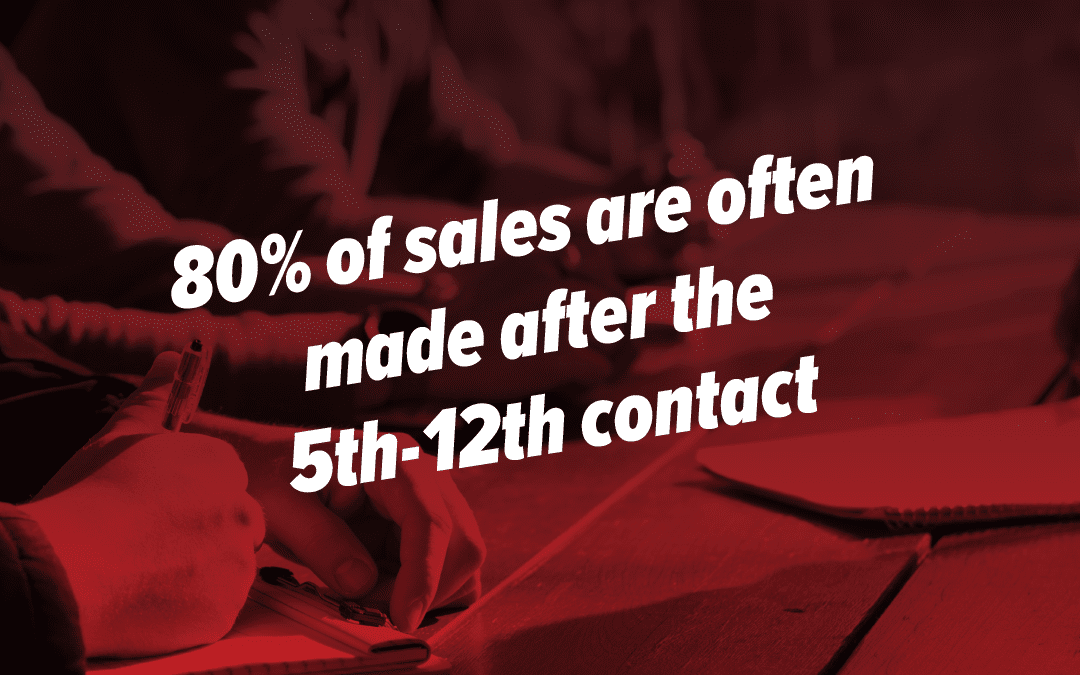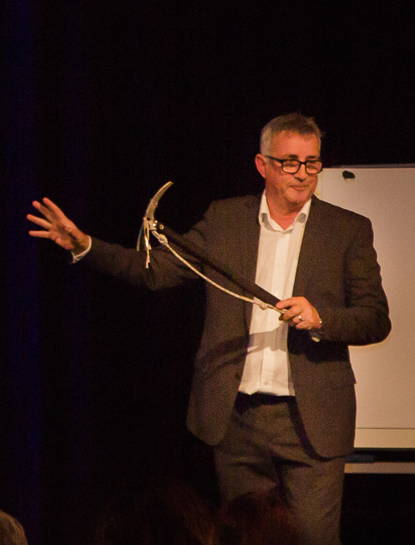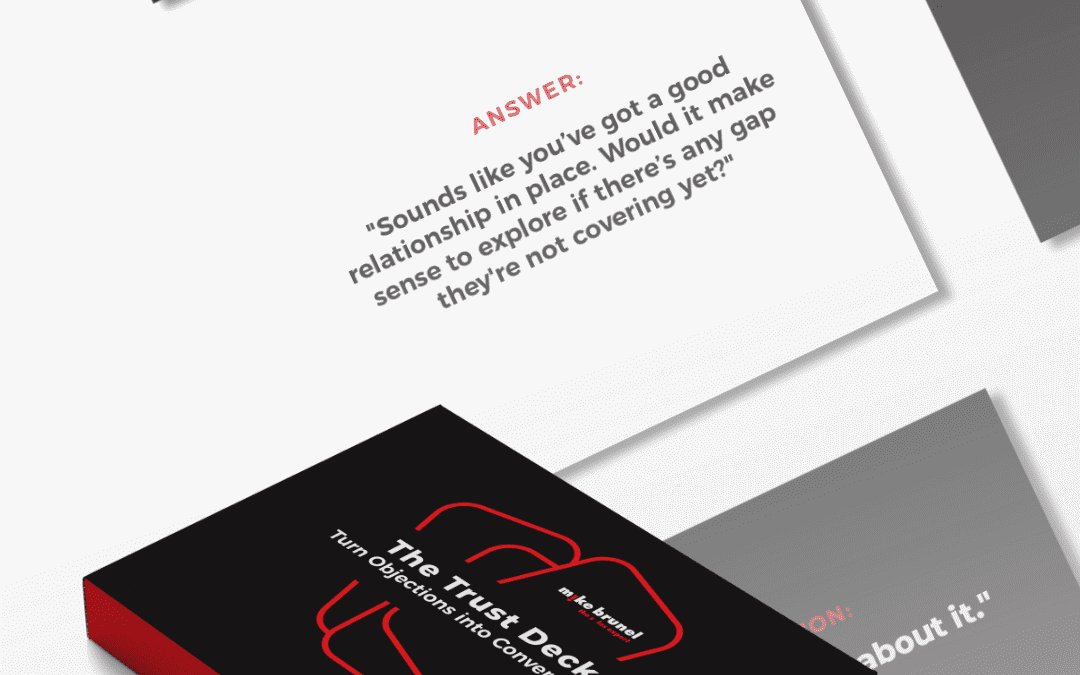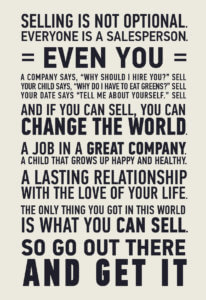
by Mike Brunel | Sep 30, 2025 | Negotiation, Sales
What do you need to understand when hiring salespeople?
Is potential everything in sales recruitment?
Here is my latest article from “Sell With AI (with a Human Touch)”!
Subscribe for free to receive insider posts.
In John Marshall’s book AI Supersales, he discusses the importance of sales DNA and why it matters more than skills.
I have always been in search of the elusive holy grail DNA that makes a salesperson unique.
John believes that when it comes to hiring or developing salespeople, most leaders look in the wrong place.
They obsess over skills, CVs, and whether someone has “experience in the industry.”
But here’s the truth: potential is everything.
A good trainer can coach and teach skills, and we all know experience can be gained.
But potential, or what we now call “Sales DNA”, sets the ceiling for performance.
If you don’t measure potential, you’re already six months behind.
Why potential comes first.
I have worked with John’s Self-Management Group for a few years now, and they have assessed millions of salespeople worldwide.
To help you identify, evaluate, and predict top sales talent. Their data is second to none:
Across millions of assessments worldwide, the data is precise:
Only 17% of people have the natural DNA to thrive in sales at the highest level.
About 66% fall into the average zone. At best, they’ll deliver average results.
And 17% are in what I call the caution zone. No matter how much you invest, they won’t perform as expected.
That means most companies are spending vast amounts of time and money developing the wrong people, and then blaming training, culture, or the market when results don’t improve.
This data is what they refer to as the talent trap.
Here are two simple prompts you can use today to rethink how you approach hiring and development:
Prompt 1:
If skills and experience could be trained into anyone, why do I still see so many “experienced” salespeople underperforming?
(This forces you to acknowledge the limits of training without potential.)
Prompt 2:
Am I investing my coaching time into people with the potential to excel — or am I just trying to fix average performers?
(This helps you reallocate energy towards those who can actually move the needle.)
If you are a sales manager reading this, take a walk around your organisation and ask yourself, “Do I have 17 percenters that are at the highest level or 83% that are average at best.
The Takeaway
Potential is the foundation. Skills are built on top. If you get potential wrong, no amount of training will make it right.
That’s why I use tools like the POP7 Sales DNA assessment — because they tell me who has the will to prospect, the ability to close, and the fit to stay.
If you want to build a high-performing sales team, start by asking:
“Do they have the DNA?”
Everything else comes after.
Have a great week, Selling your Stuff:
Mike
P.S. Be into Win 3 POP7 Sales DNA assessments and a coaching manual valued at $1295. Just hit reply with the word ‘Win’ and you are in the draw.
(Plus, whenever you are ready… here are three ways I can help you grow your business.)
1. Grab a Free copy of my book
It’s the sales roadmap to attracting prospects, building, and making more sales in your business without coming across as salesy- Click Here.
2. Join the Sales Mindset Inner Circle and connect with salespeople like you.
It’s our new Facebook community where salespeople learn to get more income, enhance their ability, and get access to exclusive content- Click Here
3. Join –“Sales Mindset Blueprint: (INVITATION ONLY) Elevating perspectives, boosting confidence, driving results and not coming across as salesy. Reply to SALESY, and I will get you the details.

by Mike Brunel | Sep 16, 2025 | Negotiation, Sales
Wins & Learnings in a Sales company
It’s one of the most straightforward but most powerful habits you can bring into a sales team.
Here’s why:
If all you do is chase wins, you miss the chance to improve.
If all you do is dwell on mistakes, you kill confidence.
So every week, I ask my teams I work with for one win and one learning from the past week.
I’m not always good at it, and often the people present don’t think about it until they are asked.
But the truth is, it doesn’t matter if it is big or small; we acknowledge it and then we move on.
Try it this week. Keep it short, keep it honest, keep it moving.

Have a good week selling your stuff.
Dedicated to your Sales Success.
Mike
PLUS, whenever you are ready…here are 3 ways I can help you grow YOUR business.
1. Grab a Free copy of my book
It’s the sales roadmap to attracting prospects, building, and making more sales in your business without coming across as salesy- Click Here.
2. Join the Sales Mindset Inner Circle and connect with salespeople like you.
It’s our new Facebook community where salespeople learn to get more income, enhance their ability, and get access to exclusive content- Click Here
3. Join –“Sales Mindset Blueprint: (INVITATION ONLY) Elevating perspectives, boosting confidence, driving results and not coming across as salesy. Reply to SALESY, and I will get you the details.

by Mike Brunel | Sep 8, 2025 | Negotiation, Sales
“I don’t want to commit to a long-term contract.”
In the media, and lots of products that have a life cycle, this is a common concern that clients have.
When I first landed in the US in the mid-to-late 90s, selling long-term advertising solutions for radio stations in South Carolina, they had never heard of an offer that would span over any more than 13 weeks.
Here was this Kiwi with a weird accent called Mike (Everyone called me Mark)
selling the concept of a 12-month advertising contract.
Our first gig was in a small town called Greenville, South Carolina. The station was called 93FM Country.
They had changed the format mid-term of our planning and threw us a dog basically.
The Chairman of Ideas and I had convinced the owners of this station, which had about 3% market share, to sell advertising offers using seminars. They thought we were mad.
After a few weeks of planning, we launched and sold $300k in a week. Yip smashed it.
They could not believe it. We went on to run a successful business in the US for many years. Thanks to a couple of smart guys who knew the market.
So, what happens when you get this sort of question?
“I don’t want to commit to a long-term contract.”
Get into a conversation:
Try this:
“That’s completely fair. Would you be open to hearing if there is a flexible option that might work better?”
Turn Objections into Conversations.
Have a good week selling your stuff.
Check out my Trust Deck here:
Check out The Trust Deck: Buy one for $149 and three arrive in your letterbox.
Dedicated to your sales Success.
Mike
PLUS, whenever you are ready…here are 3 ways I can help you grow YOUR business.
1. Grab a Free copy of my book
It’s the sales roadmap to attracting prospects, building, and making more sales in your business without coming across as salesy- Click Here.
2. Join the Sales Mindset Inner Circle and connect with salespeople like you.
It’s our new Facebook community where salespeople learn to get more income, enhance their ability, and get access to exclusive content- Click Here
3. Join –“Sales Mindset Blueprint: (INVITATION ONLY) Elevating perspectives, boosting confidence, driving results and not coming across as salesy. Reply to SALESY, and I will get you the details.
by Mike Brunel | Nov 6, 2023 | Negotiation, Sales
The Transformative Power of Effective Sales Questioning Techniques
Over the past fortnight, my blog has emphasised a powerful theme critical for any sales professional’s success: Effective Sales Questioning Techniques.
The ability to ask the right questions can dramatically shape our interactions with clients.
The Misconceptions of Salesmanship
A common misconception in sales is equating the craft with employing underhanded tactics akin to those of a stereotypical slick salesperson.
There is no place for “slick” in today’s sales environment.
This approach is short-sighted. The true art of sales lies in deploying effective sales questioning techniques to delve into what truly occupies a client’s mind.
My own business witnessed a considerable transformation when we shifted our focus from pitching to questioning—our conversations became more engaging, and our sales cycle moved more smoothly.
Keeping the Conversation Alive
How can one maintain a lively and engaging sales dialogue? By implementing effective sales questioning techniques, you foster a conversation that naturally progresses.
The path a sale takes is often shaped by the questions we ask, guiding the conversation toward a fitting resolution.
A mentor of mine, Brian Duffy, always stressed the significance of letting the client do the talking: “If the client is speaking, you’re learning and the sale is advancing. If you’re doing all the talking, progress halts.”
His style of saying “Shut up and listen”
The Art and Science of Effective Questioning
So, how does one perfect their effective sales questioning techniques? In my book, I explore the contrast between ‘Can I help you?’ questions and those that ‘Open up a discussion’—the difference between closed-ended and open-ended questions. Understanding this contrast is key to preventing potential clients from slipping away.
The Pitfalls of Closed-Ended Questions
The issue with closed-ended questions is that they can back a respondent into a simple ‘yes’ or ‘no’ corner.
Examples include.
- Can I help you?
- Is that your final answer?
- Should I call and sort it out?
- Are you interested in our new product?
- Are you satisfied with these options?
- Are you just browsing today?
- Hello there.
- Let me know if you need assistance, alright?
These types of questions, while common, often bring the conversation to a halt.
There are exceptions, but generally, they are not effective sales questioning techniques that uncover the deeper concerns or needs of a customer.
By consistently practising effective sales questioning techniques, salespeople can transform their interactions, better understand their clients, and ultimately, achieve greater success in their sales careers.
Mike (Make your questions be open ones) Brunel
PLUS, whenever you are ready…here are four ways I can help you grow YOUR business.
1. Join my free Facebook group – Sales Mindset Inner Circle
My favourite thing to do is show you what’s working right now. It’s not as good as being a client, but it’s close.
2. Take advantage of a FREE 45-minute consultation
Need some sales support? Make an appointment, and let me take you through the past, present, and future templates.
3. Work with me one-on-one
If you want to take your product or service from face-to-face to virtual selling, then I have a product that may be able to help you. You can get started for as little as $250 a month. If you’re interested then email mike@mikebrunel.com and put ‘Virtual Selling’ in the subject line…tell me a little about your business and I’ll get you all the details.
4. Finally, grab my new digital book on ‘How to get a predictable sales system into your business without coming across as salesy’
Click the link
Cheers
Mike Create PDF
by Mike Brunel | Sep 26, 2022 | Negotiation, Strategy
Do you know the difference between a small sale and a large Sale
An excellent book that I have tucked away in my library is called Spin Selling by Neil Rackman.
In Neil’s book, he maintains that there is a difference between a small sale and a large sale and different philosophies are used for both. I consult with a lot of commission-based salespeople, including real estate agents and media salespeople. Many of their transactions are large. Knowing the difference between a big sale and not so big sale is handy to know for these salespeople.
If you are able to know the difference between a large sale and a small sale you might just be able to save a lot of time when you go to prospect.
So what is the difference?
How does that relate to your long-term success?
If you can grasp this idea you will be able to avoid all those frustrating “no calls” you keep making and begin to focus on the calls that do matter.
The general rule for small sales is the one from Neil’s book.
He is sitting in an airport waiting for a connecting flight; he was browsing in a store and spotted one of those multipurpose knives, like the Swiss Army knife, the price of $15.
Within 2 seconds of seeing it, he bought it and his immediate need was satisfied. To him, it was what I call a no-decision decision.
Now, what about a bigger sale? Let’s take another scenario, you are meeting your client for the first time, and potentially that client could invest with you several thousand dollars worth of products or services.
Are you going to get him or her to buy on the first call?
The best way to approach the larger sale is to expect that it may take a little longer. They simply have different needs than smaller sales.
Here a sure-fire way to make sure that you do know the difference:
- A larger sale will contain more than one decision maker
- A larger sale involves asking more specific questions about their problems and moving them up to solutions.
- Larger clients tend to take a more rational approach to decision-making than smaller clients.
Do this on a regular basis and monitor what are your small sales and your larger sales.
One action you can take straight away is to write down all your larger clients based on spend and see if this does stack up against the criteria above.
List all your larger clients in a notebook and begin to ask questions to discover their needs over time.
Have great fun selling your stuff.
Mike

PLUS: WHENEVER YOU’RE READY…
Here are 4 ways I can help you make more sales in your business – whether your business is big or small.
1. Want to become a Sales Mindset Blueprint Member? Every month you get access to an exclusive coaching session with me as well as full access to my sales programme. Get the deets here.
2. Try the new ‘7 Days to Sales Success’ framework. Make more sales in 7 days. The framework of everything you need to get started in making more sales in your business. The Sales Success Framework is based on a simple 7-day challenge. Click here to find out how you can grow your business by making more sales.
3. Join our private Facebook group – The Sales Mindset Inner Circle. Get all the latest up-to-date sales ideas. Every week we do Facebook Live updates on all things sales. Tips, ideas, free coaching, and much more. Join me by clicking here
4. Work with me one-on-one.If you’re a business owner, small or large or in professional services you might just be a few strategies, tactics and tools away from doubling your lead flow, revenue and impact. Jump on a FREE 15-minute brainstorm call with me by clicking here.
Good Selling
by Mike Brunel | Mar 21, 2022 | Negotiation, Sales

Negotiation is a form of Selling True or False?
We all know that Negotiation is a form of selling, and our ultimate goal is that everybody wins. Impossible, right? Maybe not. In my book Selling is Not Optional- How to Master the most important skill in business and life I devote a whole chapter to negotiation.
Mutual Success
In the chapter I stress the goal of mutual success for both the buyer and seller. Often, we think negotiations can only succeed one way: we present the product, say all the right things, and get the client really excited about buying. Then we ask for the business and they jump across the desk and hug us, saying, “You saved my life.” Right?
It simply doesn’t happen that way.
What’s your fear?
Often, salespeople don’t even ask for the business for fear of rejection. They are afraid to hear, “No, not at the moment,” or, “I want to negotiate.”
As we have seen from other chapters in the book , mindset makes a difference; you have to be open to the next step. Often, after someone does decide to purchase, they still want to parry a little. People feel it is a bit of a game.
We are all in the game of negotiation. I left the house this morning negotiating with my wife about a couple of things. We negotiate with our partners and our fellow workers, and I can tell you as a parent of teenagers, we negotiate with our children.
Salespeople should avoid cultivating a closed mindset around bargaining. Negotiations are just a form of communication. Consider how negotiations can get you closer to finding a mutually beneficial solution.
A Beautiful Mindset.
Think of the John Nash story, told in the movie A Beautiful Mind. Nash, an American mathematician, proved that when you cooperate, everybody wins, and wins bigger. Game theory demonstrates that cooperation can increase each player’s ultimate reward. Having a collaborative mindset is actually the key to successful negotiation.
Here are some takeaways from my book on the subject of negotiation. (link)
- Plan your negotiation approach. Have a checklist. Don’t forget your agreement.
- There are often only a few standard areas of concerns for your clients.
- Keep your sense of humour.
A new signature, please on all emails from this week.
PLUS: WHENEVER YOU’RE READY…
- Here are 4 ways I can help you make more sales in your business – whether your business is big or small.1. Want to become a Sales Mindset Blueprint Member. Every month you get access to an exclusive coaching session with me as well as full access to my sales programme. Get the deets here.
- Try the new ‘7 Days to Sales Success’ framework.Make more sales in 7 days. The framework of everything you need to get started in making more sales in your business. The Sales Success Framework is based on a simple 7-day challenge. Click here to find out how you can grow your business by making more sales.
- Join our private Facebook group – The Sales Mindset Inner Circle. Get all the latest up to date sales ideas.Every week we do Facebook Live updates on all things sales. Tips, ideas, free coaching, and much more. Join me by clicking here
- Work with me one-on-one.If you’re a business owner, small or large or in the professional services you might just be a few strategies, tactics and tools away from doubling your lead flow, revenue and impact. Jump on a FREE 15-minute brainstorm call with me by clicking here.
Good Selling
Mike Brunel






